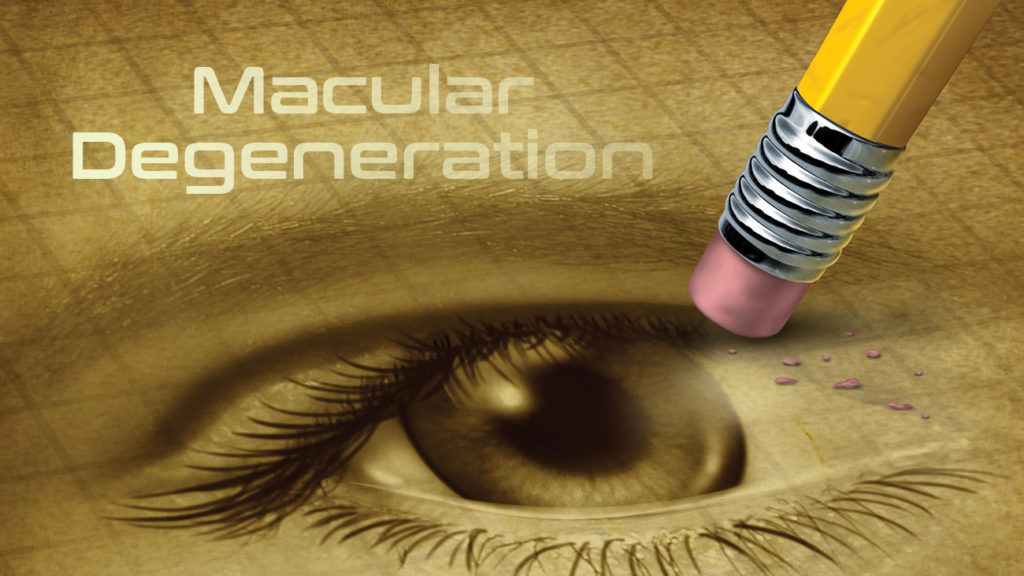Individuals over the age of 50 are at a higher risk for developing age-related macular degeneration (AMD), which causes gradual vision loss. If you are over the age of 50 and have noticed changes in your vision, call our office to schedule an appointment with your eye doctor to discuss your risk for AMD.
What is Macular Degeneration?
Macular degeneration is a condition in which the macula in the eye breaks down resulting in gradual central vision loss. This vision loss is commonly referred to as age-related macular degeneration due to its increased development in individuals over the age of 50. Early signs of this condition include shadows in your central vision, fuzzy vision, or distorted vision. While AMD is not curable, early detection, prevention, and treatment can help slow or stop the progression.
Symptoms of AMD
- Straight lines appear wavy
- Fuzzy vision
- Night vision problems
- Gray, dark, or empty area in central vision
- Dramatic vision loss
Types of macular degeneration
Dry macular degeneration is the most common type of AMD, diagnosed in nearly 90% of cases.* Dry macular degeneration causes yellowish deposits to form in the retina resulting in deterioration. Dry AMD will not result in full vision loss, but it is not curable or reversible. By maintaining good health and protecting your eyes from UV rays, you can decrease your risk and prevent early development of dry macular degeneration.
Wet macular degeneration is a severe form of AMD and accounts for about 10% of macular degeneration cases.* Wet AMD is an advanced form of macular degeneration and can result in full loss of central vision. Wet macular degeneration occurs when abnormal blood vessels grow under the retina and macula in the eye. As these blood vessels start to leak blood and fluid into the eye, the macula is forced to lift away from its base causing distorted central vision.
Who is at risk?
AMD primarily affects female Caucasians over the age of 50 people. While smoking is one of the highest risk factors for developing macular degeneration, other risk factors include obesity, high blood pressure, lighter eye color, and a family history of AMD.
If you are concerned about changes in your vision or suffer from one of these risk factors, call our office to schedule an appointment with your eye doctor and discuss your vision and risk of macular degeneration.
*American Macular Degeneration Foundation


